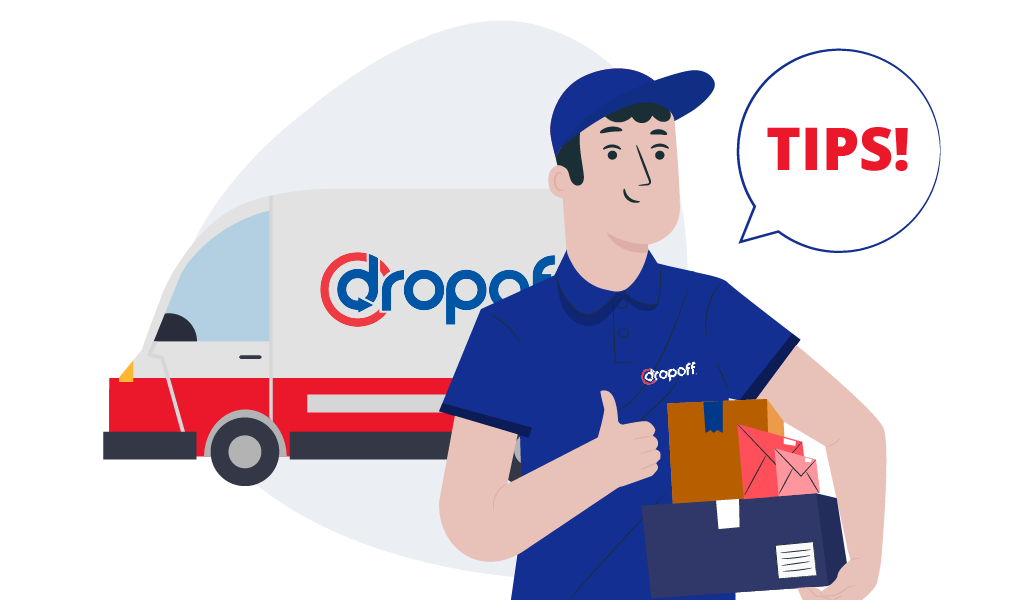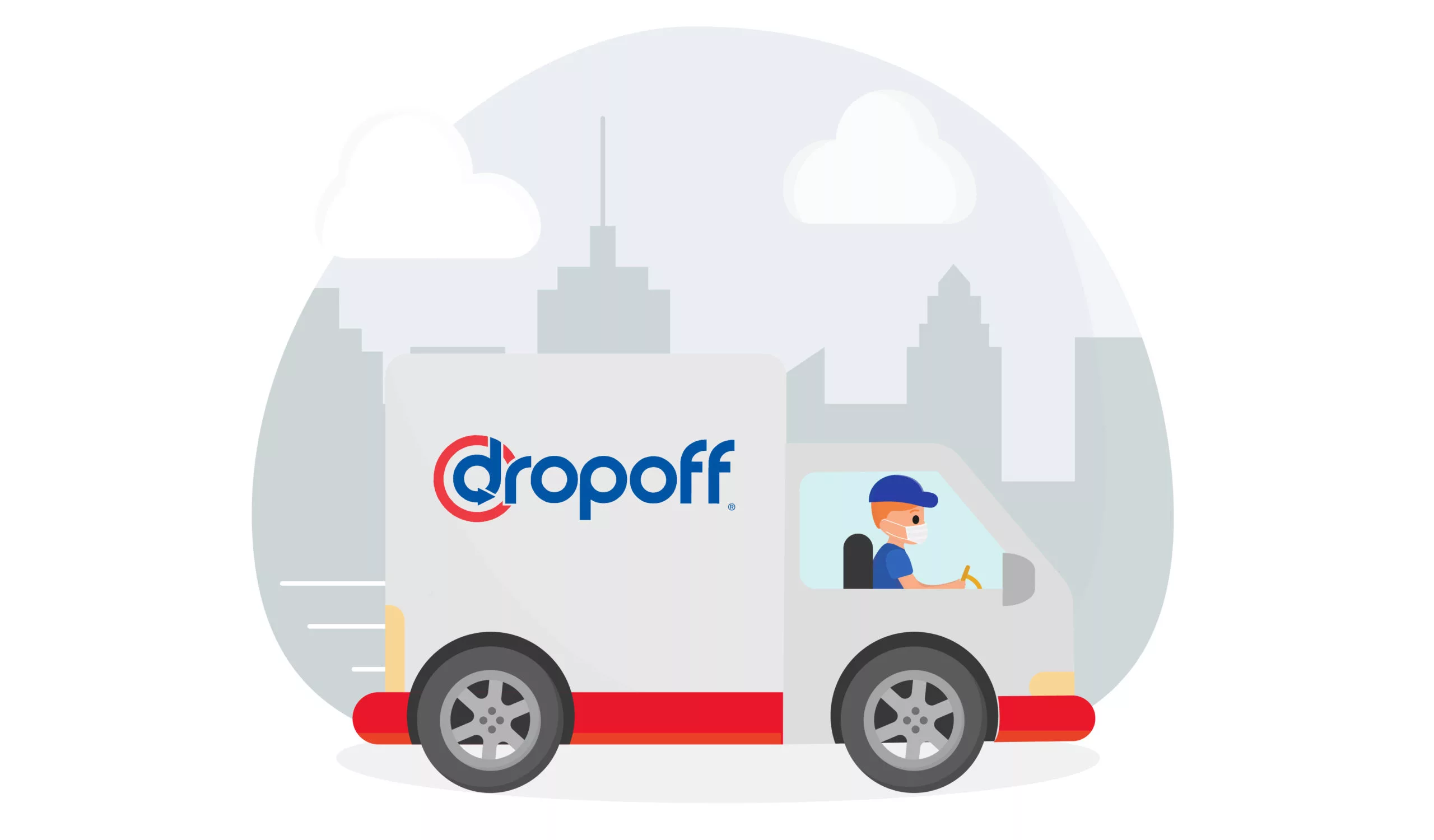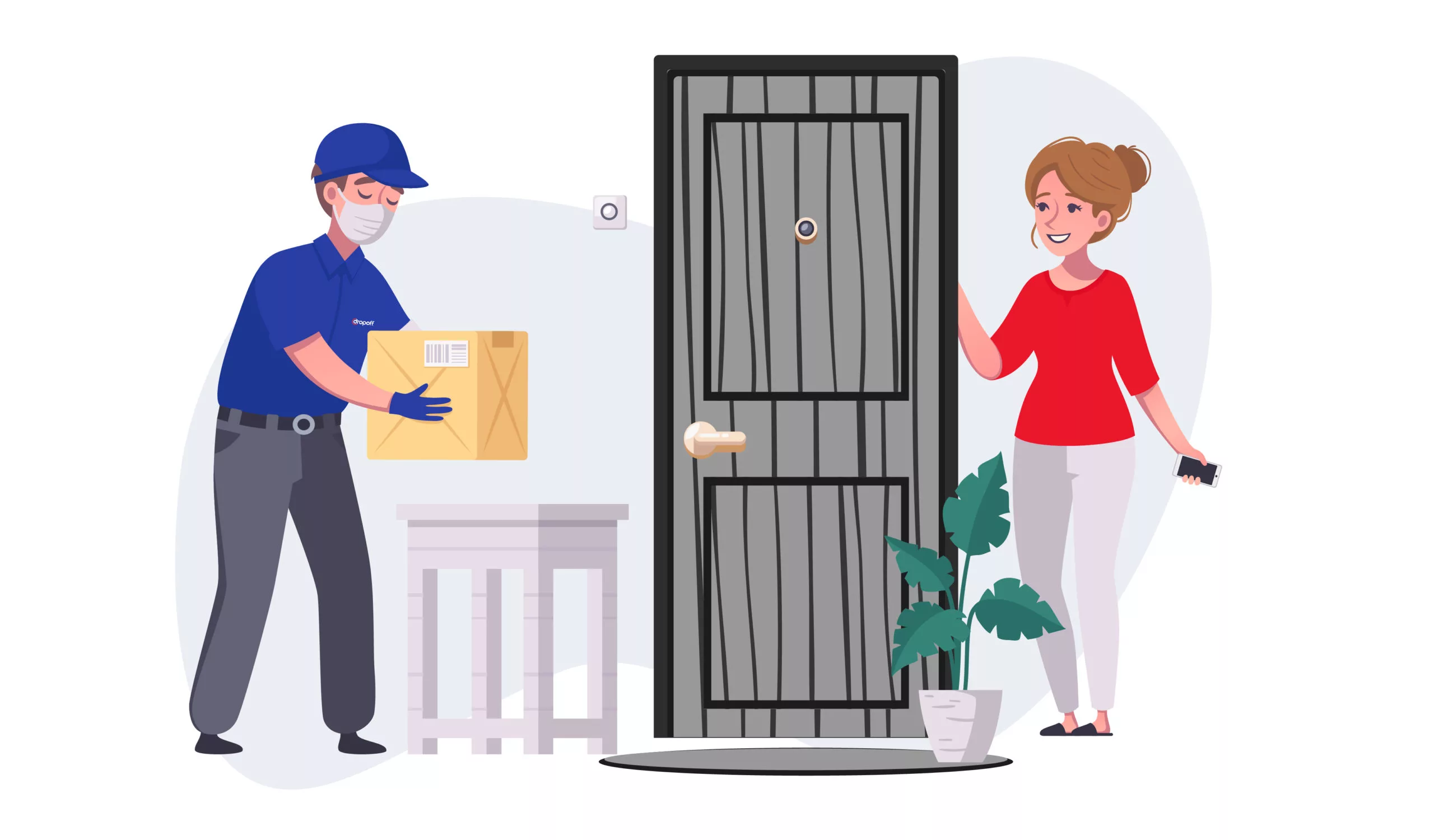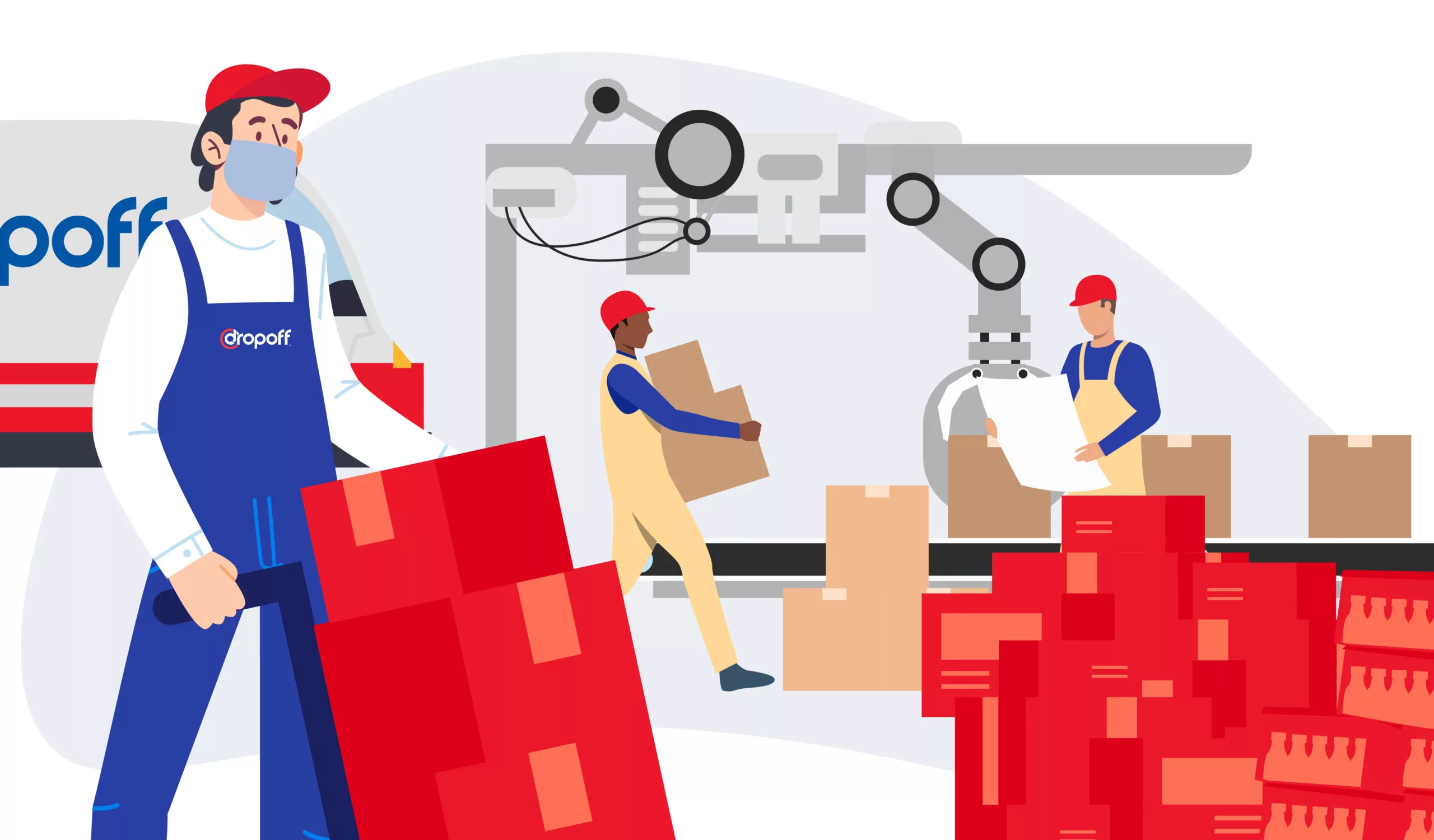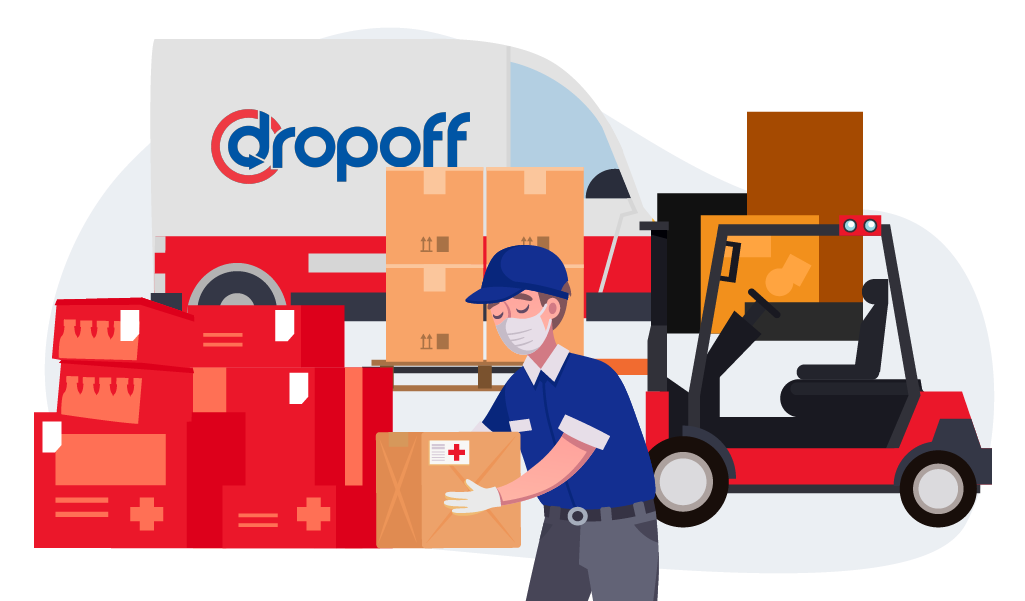What Is Crowdsourced Delivery and Why Is It Gaining Popularity?
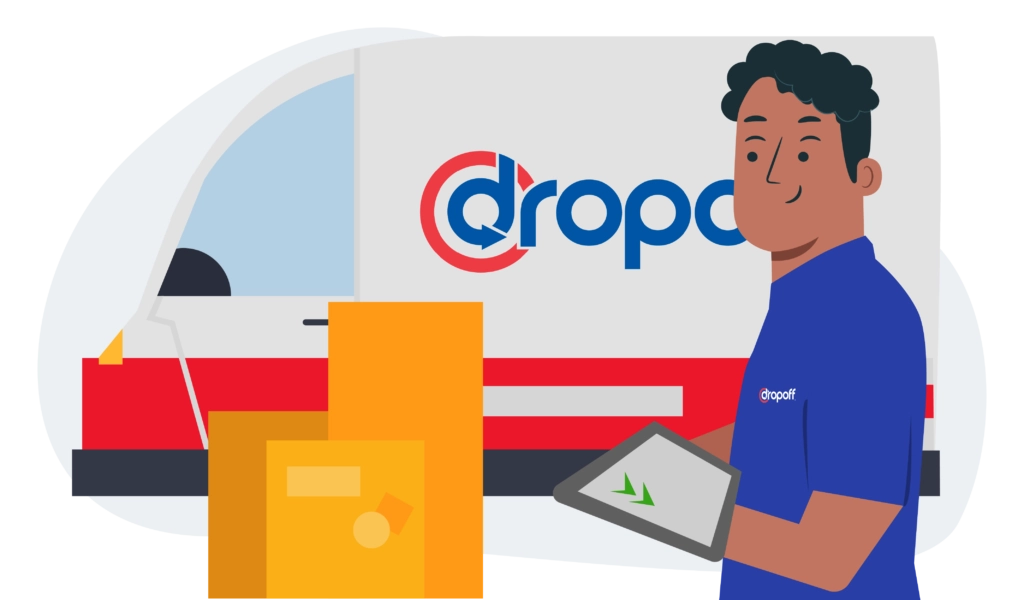
What is crowdsourced delivery? Simply put, it uses many people to deliver packages instead of a traditional courier service. In this blog post, we’re taking a closer look at how crowdsourcing last-mile deliveries can help your business thrive.
What Is Crowdsourced Delivery?

Crowdsourced delivery uses networks of local, contracted couriers to deliver packages to customers’ homes. The crowdsourcing system started with ride-sharing and then moved on to delivery. Today, businesses use it to solve speed, cost, convenience, and efficiency issues.
A study by Zebra Technologies in 2019 shows that most retailers are expected to use crowdsourced delivery by 2028.
The Benefits of Crowdsourced Delivery
Let’s break down the advantages of crowdsourced delivery below.
1. Expedited Delivery
First off, it delivers to customers faster. Sometimes it takes less than an hour. And with the option of on-demand or scheduled delivery, companies are meeting the needs of their customers in an instant.
2. Does Not Require Technology or Assets
Another benefit of crowdsourced delivery is that it doesn’t require much technology or assets. The idea is similar to how ride-sharing drivers use their cars to transport people. Contracted couriers use their own vehicles to make deliveries and are typically paid per delivery or shift. So companies don’t have to worry about warehouse operations, fleet management, or employee benefits.
3. Efficient Courier Operations
With crowdsourcing, businesses meet customer demands without affecting profits. It becomes easier to manage driver operations.
4. Simpler Onboarding Process for Couriers
Businesses are also able to quickly onboard drivers by using user-friendly apps. Typically, the app features things like driver registrations, uploading identity proofs, and checking the driver’s status in real-time.
Main Challenges of Crowdsourced Delivery

Although crowdsourced delivery services come with a list of benefits, they’ve also got their challenges.
1. Shortage of Couriers
Couriers often have other jobs outside of delivering packages. Eventually, they switch from one job to another, making it hard for logistics companies to keep them.
2. Lack of Brand Presence
When businesses deliver packages to their customers, they’re also on a mission to establish brand loyalty. This is where it gets tricky. In reality, customers don’t meet the face of the brand they purchased from when receiving their package. They meet the courier of an entirely separate logistics business.
That lack of connection between the brand and the customer makes increasing brand awareness difficult.
3. Lack of Elaborate Data
Unfortunately, the simplicity of crowdsourcing logistics comes with the downside of taking lots of action without data. Businesses should do their best to provide real-time data for dispatchers, support, and delivery users. Not to mention, they should also collect customer data and feedback.
Without all that information, it’s impossible to have any insight into anything related to deliveries.
4. Mode of Transportation
We discussed how couriers having the freedom to use their vehicles is an advantage of crowdsourced delivery. But couriers using bikes (or walking on foot) struggle in suburban or rural areas. That’s because there isn’t as much activity in those places, and getting drivers without vehicles to meet delivery times is harder.
5. Complex Payment Method
Some companies choose not to integrate crowdsourced delivery couriers into their systems – which is fine. However, this will require the courier to do things their way. They’d have to handle payments and tips on their own. As a result, payment methods aren’t as straightforward and could result in the customer not making a second purchase.
6. Higher Costs (In Some Cases)
Companies usually charge a fee for delivering the package and eCommerce when available. The fees get up to 35% of the total order value when using these services.
Check out our article on door-to-door delivery and why customers love it!
How Crowdsourced Delivery Works
Here’s a blueprint for performing crowdsourced deliveries:
- As soon as a delivery is scheduled, it is automatically assigned to a nearby courier.
- After the order has been picked up and packed, the assigned courier will deliver it to the recipient using their vehicle. The pickup and delivery can be done right away or during a specific time window.
- The recipient or courier confirms that the delivery arrived safely. The courier then receives compensation from the logistics company.
The Role of Technology in Crowdsourced Delivery
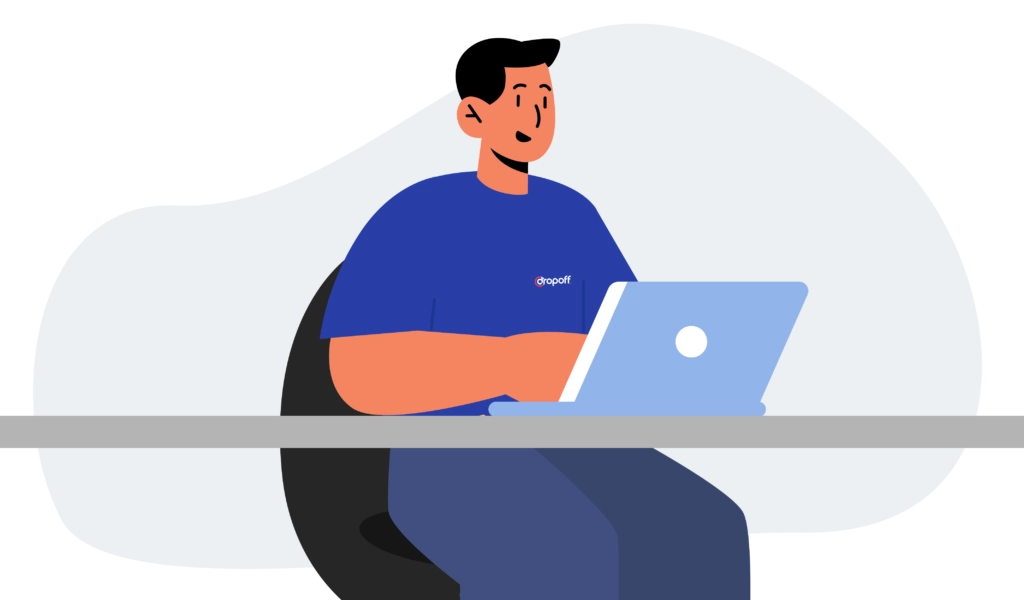
Now that crowdsourced delivery services are gaining more popularity; brands are trying to be better at managing them. This includes managing multiple fleets of vehicles – both internal and external ones. Therefore, they turn to technology.
Today, companies can measure customer satisfaction before and after delivery. Only by having a clear view of the entire supply chain can brands provide high-quality customer experiences and grow sustainably.
Technology has helped businesses embrace delivery through various industries by tracking, managing, optimizing, and scaling their delivery operations. It has allowed them to control driver flows, measure driver performance, understand customer satisfaction, and collect customer feedback. There has also been innovation in dashboards, providing real-time alerts and top-level reporting.
So how exactly does technology help with crowdsourced deliveries?
- It creates a single, centralized platform for all delivery models to help manage deliveries better.
- It allows the dispatching of on-demand delivery orders in a time-based fashion.
- It provides apps that offer real-time information for orders throughout the supply chain.
- It helps compare performances and predict future numbers, helping logistics managers make better financial decisions.
- It helps expand the use of crowdsourced fleets based on peak demand, whether seasonal or hourly.
- It notifies customers when orders are on the way, where they are, and how to support contactless delivery.
- It takes advantage of courier apps for managing the delivery flow.
- It notifies customers and logistics managers when deliveries are running behind.
With the right technology in place, businesses will have effective delivery processes.
The Impact of Crowdsourced Deliveries in Different Industries
Each industry reacts to crowdsourced deliveries differently.
1. Healthcare Industry
In the healthcare industry, one would assume that crowdsourced deliveries prove to be useful due to their quick turnaround times. And while maintaining patient care requires fast deliveries, we have to consider the people delivering.
It’s so important for any medical courier to be HIPAA-compliant and trained in specimen handling. This is what most crowdsourced delivery couriers lack. Essentially, they’re regular people delivering packages and receiving compensation for it. Hence, they don’t have expertise in healthcare logistics.
2. Retail Industry
Here are the benefits of crowdsourced deliveries for retailers:
- They can quickly scale their delivery capacity using on-demand couriers, which is very useful during peak season.
- There’s no need to maintain or operate any fleets.
- There are fewer logistics workforce requirements.
- There is less warehouse congestion because products move out faster.
- There are fewer stops along the way. For instance, a truck courier handling multiple last-mile orders has more stops than a bike courier with fewer orders.
- Customer experience improves as they receive their orders faster.
3. Construction Industry
In the construction industry, meeting deadlines is vital. Products need to be delivered on time and on-site. So same-day delivery is often essential, and crowdsourcing helps get the job done.
Therefore, material suppliers must be flexible and ready to deliver to keep customers happy. No matter what time of day it is or what supplies are needed, crowdsourced deliveries meet their demand.
Crowdsourced Delivery Companies
Below is a list of the best companies offering crowdsourced shipping services.
- Loggi – Loggi uses a big network of motorbike couriers to deliver products quickly and reliably.
- Dropoff – Dropoff has set same-day delivery standards by providing a better customer experience built on convenience and reliability.
- Borzo – Borzo connects customers to couriers in their area so they get their deliveries on time.
- Beelivery – Beelivery developed a nationwide 90-minute grocery delivery service utilizing crowdsourced drivers.
- Sherpa – Sherpa allows businesses to buy products from anywhere, with the option to have items delivered within two hours.
How Dropoff Can Help with Crowdsourced Deliveries

At Dropoff, we believe that crowdsourced delivery is a powerful tool for businesses of all sizes. With a huge network of professional couriers, we want to help your business scale its logistics operations quickly and efficiently.
We deliver nationwide, and our drivers are available 24/7/365. Whether you need same-day or next-day delivery, we can get your shipments where they need to go. Plus, our tracking technology lets you track your shipments in real-time.
Talk with a Dropoff expert, and we’ll curate the ideal logistics solution for you.
FAQs on Crowdsourced Deliveries
1. What is crowdsourced delivery?
Crowdsourced delivery uses networks of local, contracted couriers to deliver packages to customers’ homes.
2. What is crowdsourcing in the supply chain?
Crowdsourcing is when you obtain services from a big group of people to help optimize supply chain operations.
4. What are the best-crowdsourced delivery apps?
Here are some of the best apps for crowdsourcing logistics:
- DoorDash
- Dropoff
- Uber
- Instacart
- Postmates

